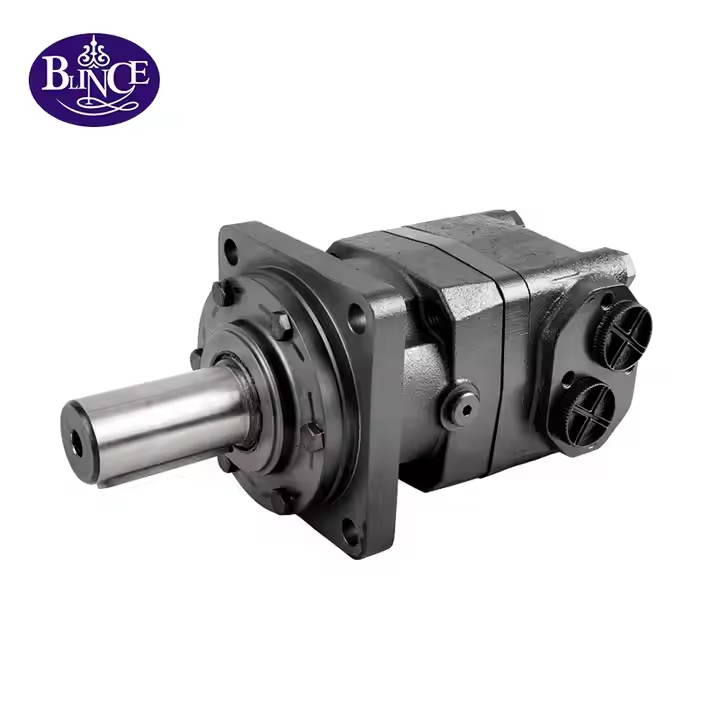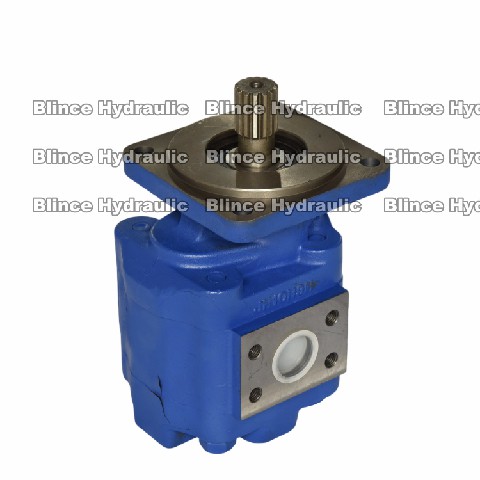When working with hydraulic systems, one of the most important decisions is selecting the right hydraulic motor for your application. Many engineers and equipment users often ask: What is the difference between orbital hydraulic motors, gear motors, and piston motors? And more importantly, how do we select the right one for our hydraulic system?
In practice, the three most widely used types of hydraulic motors are:
Hydraulic orbital motors (cycloidal motors)
Gear motors
Piston motors
Each has its own structural principles, efficiency levels, performance characteristics, and best-fit applications. Let’s explore them in detail.
Hydraulic Orbital Motor (Cycloidal Motor)
An orbital hydraulic motor—often called a hydraulic orbital motor or hydrauli moottori in Finnish—operates based on an internal gear principle with cycloidal engagement. Inside the motor, the rotor and stator form enclosed chambers that expand and contract as hydraulic oil flows through, creating rotation.
Efficiency & Performance: Orbital motors generally operate with efficiencies between 80–90%. Their speed range is flexible: from as low as 30 rpm up to 1850 rpm. Torque can reach around 1900 Nm, though the pressure rating is lower compared to piston motors—typically below 20 MPa, with many models designed for ≤16 MPa.
Advantages: Simple design, wide applicability, reliable under medium load.
Limitations: Not ideal for speeds above 1500 rpm or for low-noise requirements.
Applications: Orbital hydraulic motors are among the most widely used in the industry. They appear in:
Agriculture: seeders, harvesters, fruit pickers.
Forestry: feller bunchers, log handlers.
Fisheries: winches for small boats, net hauling, anchoring.
Construction & Mining: drive systems for coal mining, compactors, and municipal sanitation vehicles like garbage trucks and sweepers.
Industrial Machinery: injection molding machines, vulcanizers, shoe machines, tool turrets.
Because of their cost-effectiveness and versatility, orbital hydraulic engines are often considered the “workhorse” of many mobile and stationary hydraulic systems.

Gear Motors
Gear motors are another common category of hydraulic pumps and motors. They are usually divided into external gear motors and internal gear motors. Technically, orbital motors are also a kind of internal gear motor, but in industrial use, the term “gear motor” usually refers to the external gear motor.
Performance:
Efficiency: 70–85%
High speed capability (up to 4000 rpm)
Recommended minimum speed: above 600 rpm
Pressure rating: up to 25 MPa
Advantages:
Simple structure and low manufacturing cost
Easy to maintain, lower purchase price
Strong resistance to contamination—“dirty” oil is tolerated better
Limitations:
Higher leakage compared to piston motors
Higher noise levels due to gear engagement
Less efficient at low speeds
Applications: Gear hydraulic motors are best for high-speed, low-torque scenarios. Examples include:
Because of their low cost and durability, gear motors are often chosen for rugged environments where reliability matters more than maximum efficiency.

Why Trust This Guide? Blince Experts’ Proven Hydraulic Experience
At Blince Hydraulic, we bring together more than 20 years of hands-on expertise in the hydraulic industry. Since our founding in 2004, we have specialized in hydraulic motors, hydraulic pumps, steering control units, directional control valves, and complete hydraulic systems. Our team is not only deeply knowledgeable in the technical aspects of hydraulic engineering but also highly experienced in delivering cost-effective, application-driven solutions across agriculture, construction, forestry, and mining sectors. This ensures you receive reliable, field-tested answers—not just theoretical advice.
Backed by advanced production facilities in Dongguan—strategically located near Shenzhen and Guangzhou ports—Blince has been able to implement a “customized design + large-scale mass production” model for global OEM customers. In practice, this means we help clients quickly validate prototypes with flexible hydraulic solutions and then seamlessly transition to full-scale production without delays. From hydraulic orbital motors for agricultural machinery to piston motors and gear motors for heavy construction equipment, our products combine high efficiency, durability, and precision.
With internationally recognized certifications such as ISO9001 and CE, along with more than 10 registered patents, Blince Hydraulic ensures consistent product quality and innovation. By overcoming challenges of balancing performance, cost, and reliability, we provide customers with complete hydraulic solutions that support both long-term system stability and large-volume production success.
Piston Motors
The piston motor, also referred to as a hydraulic pump motor, represents the most advanced technology in this category. With efficiencies exceeding 95%, piston motors deliver superior performance in demanding applications.
Performance Characteristics:
Radial piston motors:
Large displacement, heavy, and powerful
Maximum pressure ~25 MPa
Maximum torque up to 10,000 Nm
Lower speed range, ideal for heavy machinery
Axial piston motors:
More complex and expensive
Maximum pressure ~40 MPa
Speeds up to 10,000 rpm
Suitable for high-power, high-speed, high-torque applications
Applications:
Radial piston motors: Horizontal injection molding machines, winches, large fishing vessels, coal mining machinery, crushers, trenchers, and rotary tillers.
Axial piston motors: Forestry machines, wood splitters, rock saws, pile drivers, fans, pumps, and various construction equipment.
Consideration: Piston hydraulic motors require cleaner hydraulic oil than gear or orbital types. Poor oil quality can significantly reduce service life. However, with growing trends toward smart and energy-efficient hydraulic systems, piston hydraulic pump motors are expected to see even broader adoption in the future.
Choosing the right hydraulic motor—whether an orbital motor, gear motor, or piston motor—depends on your system requirements:
For low to medium pressure applications with versatile speed and torque needs, choose an orbital hydraulic motor.
For cost-sensitive, high-speed, lower-torque systems, select a gear motor.
For high-pressure, high-efficiency, and demanding power needs, opt for a piston motor.
In short, matching the motor type to your operating conditions, expected load, and oil quality standards ensures long-term reliability and performance. By understanding the differences between hydraulic pumps and motors, engineers can make informed choices that extend machine life and optimize productivity.
Blince Team
Blince Hydraulic is an industry-leading company specializing in complete hydraulic solutions. With over 20 years of experience and long-term cooperation with more than 5,000 global customers, we focus on high-performance hydraulic motors, hydraulic pumps, steering control units, directional valves, hydraulic cylinders, hoses, fittings, and other one-stop hydraulic system solutions.
Our factory group is equipped with advanced CNC machining centers, automated production lines, and precision testing equipment. Certified with ISO9001, CE, SGS, and UL, Blince provides fast, efficient, and high-quality hydraulic solutions to customers in more than 100 countries worldwide. Whether you need small batch customization or large-scale production, we can meet your demands with reliable delivery and competitive performance.
Choose Blince technology — it means efficiency, durability, and professionalism in every hydraulic product we deliver.
To learn more, visit our website: www.blince.com
Tel: +86 180 3845 8522
Email: sales01@blince.com
Website: https://www.blince.com

























